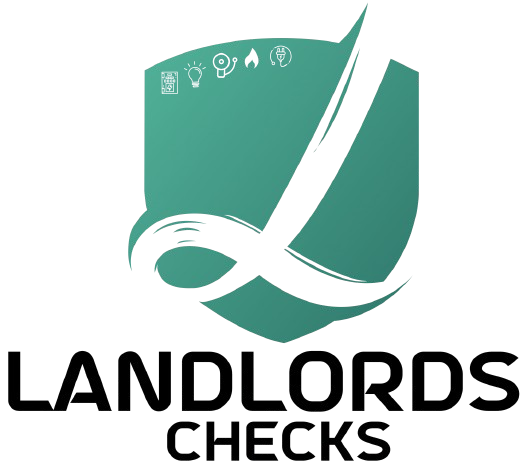It’s often helpful to know exactly what documentation you may expect from an engineer if they perform gas maintenance on your property. Here is all the information you require.
The following information is geared toward property landlords.
We want to emphasize that, as stated below, landlords are accountable for their properties and owe their renters a duty of care.
What is a Gas Safety Record?
After performing gas work at your property, a gas engineer may provide you with a Gas Safety Record as proof. The paperwork will frequently depend on their job, whether it was a safety check or a service.
What should a Gas Safety Record contain?
You have a legal obligation as a landlord renting out a home to make sure your renters are safe. Accordingly, you must engage a Gas Safe registered engineer to perform an annual gas safety check on all gas appliances as required by law. The findings of this check are then recorded in your LandlordGas Safety Record.
You’ll get a copy, and you’ll have to give your tenants proof of this check.
- Your record should contain:
- A description of each appliance or flue that was examined, together with its location
- the engineer’s name, registration number, and signature
- Date of the inspections
- The location where the appliances or flues are installed
- Your name and address (or, if appropriate, that of an agent)
- Details on any safety flaws and the steps that need to be done to repair them
- the results of each appliance’s operational safety inspection
What checks must I perform?
For a landlord’s gas safety check to be compliant with the requirements, GSIUR specifies precisely what work must be done and what data must be recorded.
Regulations 26(9) outline the checks you must conduct:
- Appliance burner pressure or gas rate, or both, as necessary
- Ventilation is open and clear with sufficient size, etc.
- Combustion gas analysis, as specified in the appliance manufacturer’s servicing and maintenance instructions.
- Visual inspection of the gas installation, appliance(s), location, terminal, chimney/flue route/position, and signs of incomplete combustion
- Flue flow and spillage testing, as necessary for the proper operation of the flue
- All flame monitoring devices and/or other safety controls, as necessary for the proper operation
- Look into any evidence that an appliance is being operated improperly.
You must take all practical steps to inform the landlord or other accountable party of any defects. You should alert the gas supplier if the appliance is LPG-fueled and the carrier in all other circumstances. In line with the Gas Industry Unsafe Situations Procedure (GIUSP), also known as IGEM/G/11, this action should only be conducted when an Immediately Dangerous situation is recognized and the person responsible denies authorization to disconnect the appliance or installation.
What other checks need to be done?
Additionally, the gas pipework in your rental property needs to be maintained securely. The annual gas safety inspection does not cover installation piping. Nevertheless, we advise contacting your Gas Safe registered engineer to do a tightness test on the installation piping when you request a safety check. It is not a legal obligation, though. By visually inspecting the pipes, you should verify the gas meter/emergency control valve for accessibility in an emergency, maintenance, and proper labeling.
Can I still complete the record if an appliance is AR or ID?
An LGSR should always be issued because it is NOT a certificate but a record of your observations on the site. You must fill out the gas safety check record with information about whether the appliance(s) are safe to use and whether there are any gas safety issues that the landlord needs to fix.
What information must I provide to tenants?
Within 28 days after the check’s conclusion, you must give your current tenants a copy of the gas safety check report. Before a renter moves in, you must provide them with a copy of the gas safety check record.
What to do if there is a gas emergency?
Make sure your tenants know where and how to turn off the gas and what to do in case of a gas emergency.
How long must I keep a record?
Gas safety check records must be kept for at least two years.
But let’s say you want to use the new flexibility provided by the Gas Safety Regulations of 2018 and schedule gas safety inspections up to two months in advance. You will need to prove that you have cooperated with the legislation and completed the gas safety inspections within the appropriate timeframes if the check is required but still maintains the original deadline date (as if the check had been completed precisely 12 months after the last check). The record must be kept until two more gas safety inspections have been performed.
Does each appliance and flue require a separate gas safety check record?
No, only one record is often made outlining all the items examined.
When should the Gas Safe registered engineer issue the gas safety check record?
Only after all necessary tests should the Gas Safe registered engineer issue the record. Landlords must take corrective action and ensure that the appliance is not used if unsafe and any problems or issues are discovered due to the inspection.
The findings of the annual gas safety inspection are documented in the gas safety check record. Even if problems are discovered, they should be issued immediately after the gas safety checks are finished and not held up until the required corrective action has been completed. The record is a “living document”; thus, landlords should add records of any further actions done to it (if required). It gives a complete account of the property’s gas safety.





